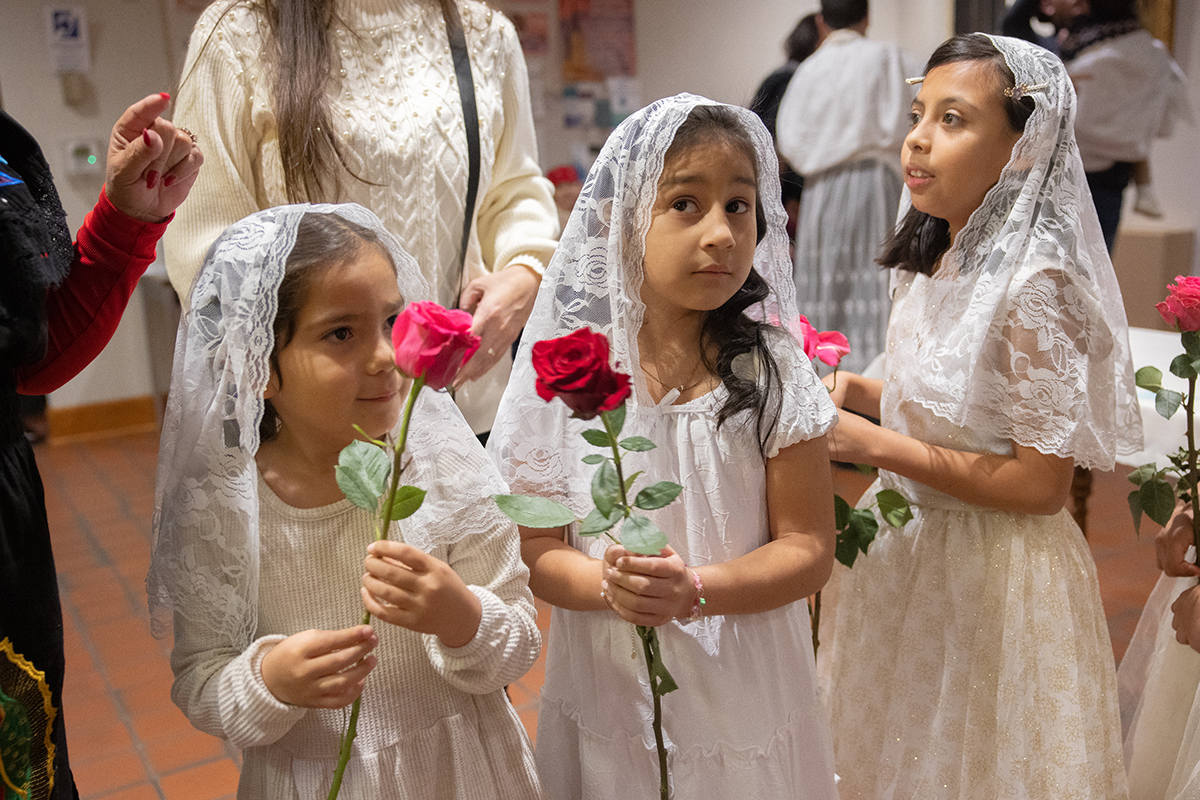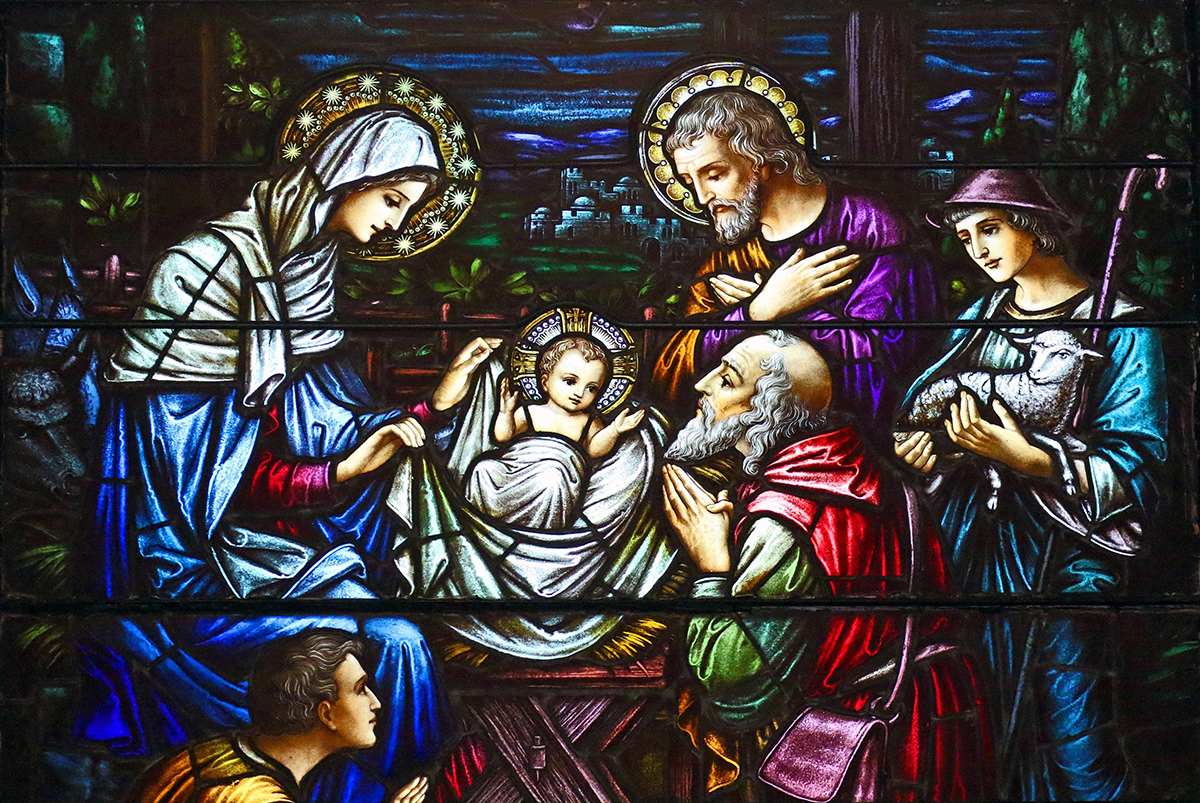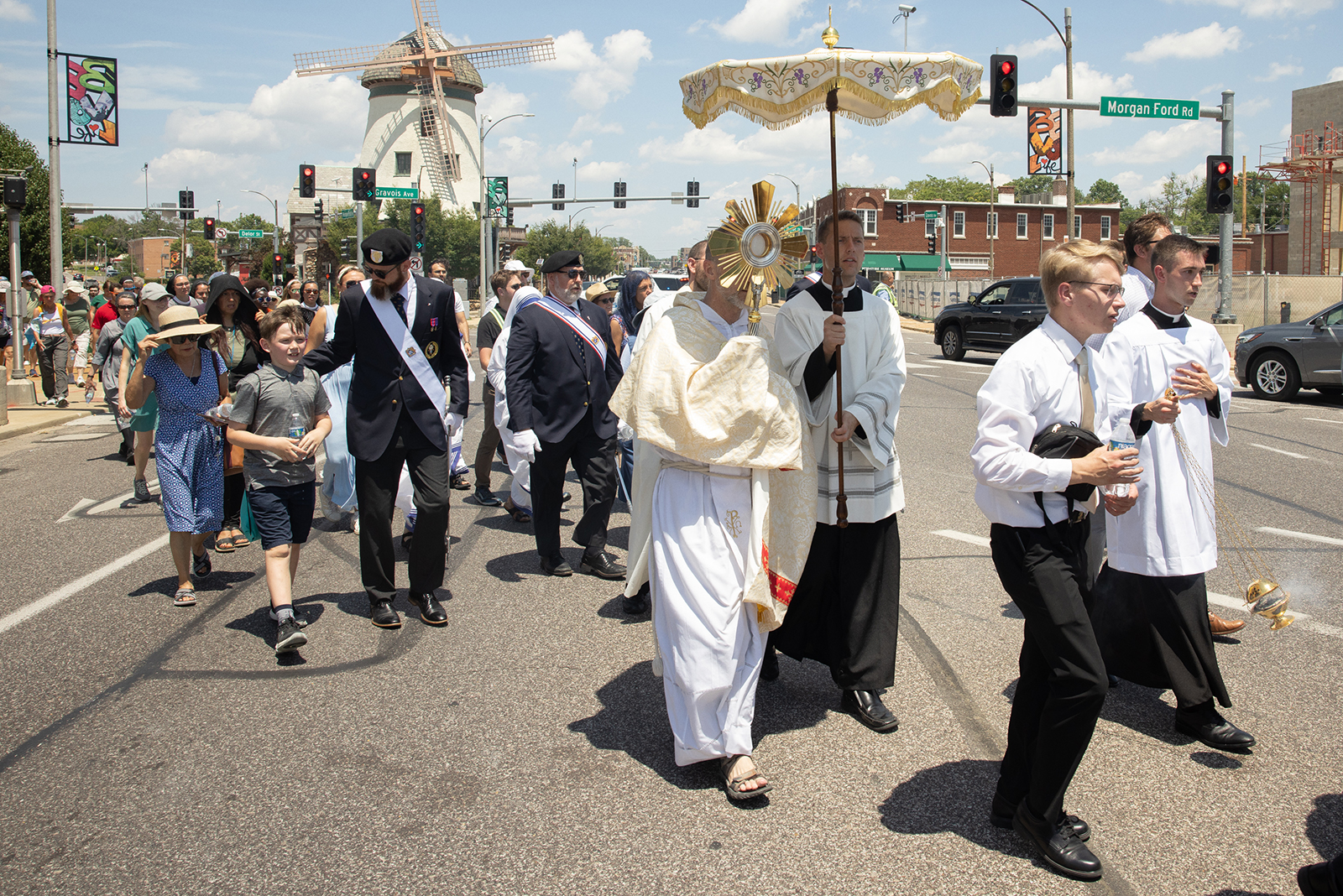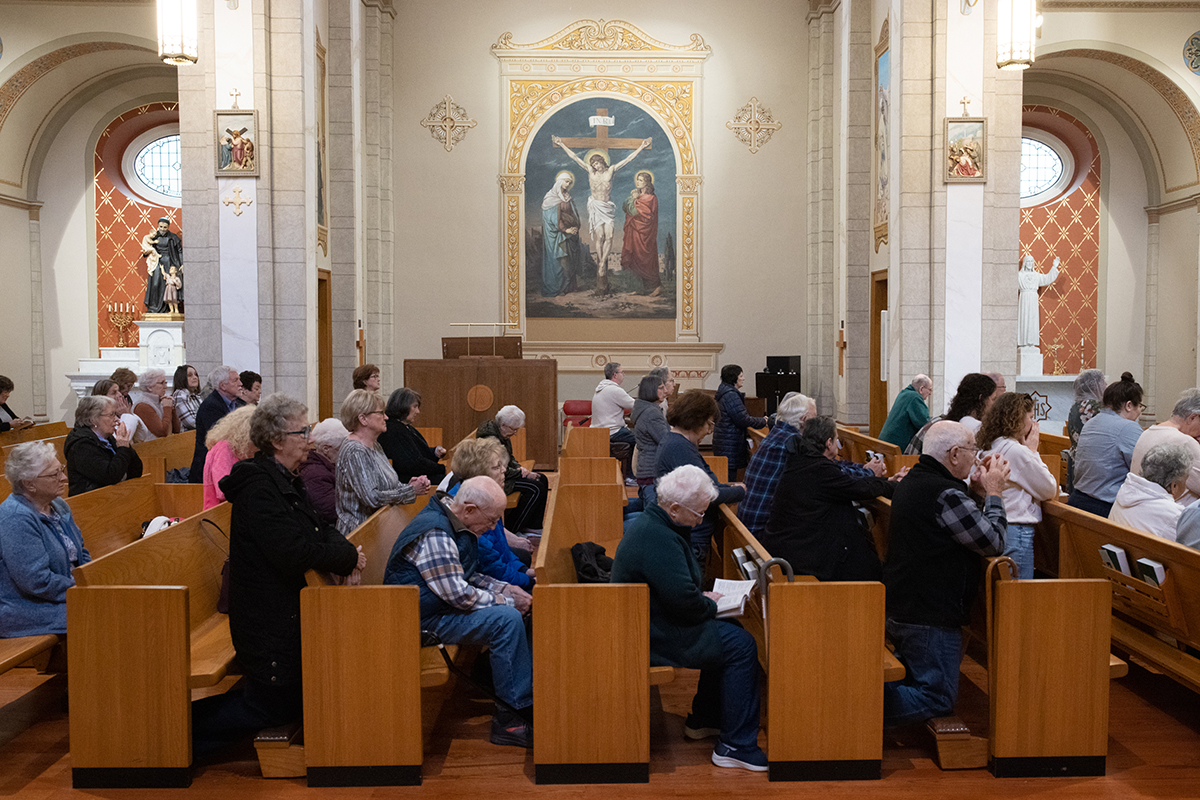Catholics share their advice for giving thanks for the blessings in our lives
Catholics share their advice for giving thanks for the blessings in our lives
Holiday gatherings bring together people who otherwise may not spend a lot of time with one another. These get-togethers often span generations, political beliefs, vocations, socio- economic backgrounds and even religions, cultures and races.
Thanksgiving is a time for sharing our gratitude, enjoying family and reflecting on our blessings. It’s also an opportunity to connect with loved ones — some of whom might have vastly different beliefs and ways of life. So how do we find common ground and show appreciation for our blessings?
We asked for some of the best advice on navigating Thanksgiving gatherings:
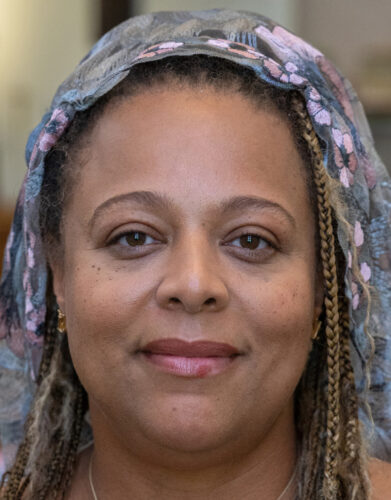
Alice Prince, parishioner at St. Josephine Bakhita, St. Louis
What do you bring to the table? That’s the question Alice Prince poses to her family as they prepare to gather around the Thanksgiving dinner table. Prince and her husband, Carlton, and three adult children are part of a small family gathering held each year at their home.
There are no rules: Someone may bring food. Another may bring a game to play. And others just bring their authentic selves, she said. “It gives me an opportunity to really get to know where people are at this moment in their life,” Prince said, and to “figure out what are we bringing around our dinner table? What do we need to pray about? What do we need to laugh about? How can we also have fun?”
Leaning into love is another theme that Prince embraces. Thanksgiving is a time to share our blessings, but equally important is loving people wherever they are in their lives. For those who are experiencing a “hole” in their lives — maybe it’s a loss of a loved one or something else of significance — it’s OK to name it, so that we may be filled with the spirit of Jesus, Prince said.
Whether that’s family related by blood, chosen family and friends or parish family, it’s important “that we are constantly figuring out how do we lean into love and love people how they want to be loved,” she said.

Father Carl Scheble, archdiocesan vicar general and moderator of the Curia, in residence at St. Joan of Arc, St. Louis
When we think of our blessings, we also should recognize God’s presence in the gifts that we have been given, Father Carl Scheble said.
The parable of the 10 lepers — and specifically the one who returned to thank Jesus for being healed — is an example of where we can find common ground with one another as we see God as the source of our blessings, he said.
“I’m sure they were all grateful that they were healed — the nine just ran home to enjoy it,” Father Scheble said. “But the one realized it’s more than just the immediacy of what I’ve received. It’s a gift from God that I have now this immediate new healing in my body.”
Avoiding expectations is another way in which we can enjoy the time together at Thanksgiving, he said. “Don’t worry about expectations, and allow it to happen,” he said. “Just be appreciative however that holds.”

John O’Leary, public speaker and author and parishioner at Holy Redeemer, Webster Groves
One of John O’Leary’s favorite childhood memories was when his dad would wake up him and his siblings on Thanksgiving morning and announce: “If you have nothing to be grateful for, stay in bed. If you do, get ready and let’s go to Mass.”
It was always a choice whether the O’Leary children would go to Mass that morning. It’s now a tradition that he practices with his wife Beth and four children as a way to give thanks to the source of their gratitude: God.
Reflecting on our blessings is important not just when we’re feeling on top of the world, but also when we’re at our lowest point, O’Leary said, who has a tradition of reading President Abraham Lincoln’s 1863 Thanksgiving proclamation.
“Before I read it to them, I remind them that he wrote it in midst of a civil war, months after a child passed away, in the midst of a country in conflict and his own political party trying to take him down,” he said. “In his own world, seemingly, there was nothing to be grateful for. And you read this document of the origin story of Thanksgiving … in the midst of the storm, we are so overwhelmingly blessed that we are at risk of missing the blessings in front of us.”
Family members then take turns sharing something that they’re grateful for. “It’s a way for the entire conversation to shift from politics, football and the unimportant,” he said. “It quiets the entire room in this intimate conversation of gratitude.”

Fernanda Thurmond, parishioner at St. Joseph, Manchester with the Brazilian Catholic community
As a first-generation immigrant from Brazil, Fernanda Thurmond wasn’t familiar with Thanksgiving until she married someone from the United States. Fernanda and Mike Thurmond and their three children host a meal at their home every year, sometimes inviting other Brazilian Catholics who don’t have family here to join the celebration.
Thurmond said she is grateful for the blessings of the Brazilian Catholic community at St. Joseph Parish in Manchester, where they celebrate faith traditions from their South American culture and pray and worship together in their native Portuguese.
“For us, it’s this small parish community we are grateful for and these friendships,” she said. She often thinks about how God had chosen them to be together. “What are the odds we would end up in St. Louis? I tell them we need to be grateful for God having us here together. It wasn’t like we planned it. We were chosen to live together and be each other’s friends and Christian support.”
The Brazilian Catholic community in St. Louis formed in 2009 and about 10 years later found a home at St. Joseph in Manchester. The community also hosts other activities, including a Charismatic group, regular retreats, faith formation, charitable works and other celebrations.
“We remind ourselves (of the blessings) all year round,” Thurmond said. “We really need to be grateful for each other, because we have each other.”
Managing difficult conversations at the Thanksgiving holiday

•Don’t go into a discussion with the attitude of “winning.”
•Ask questions of those with an opposing viewpoint to identify the values and life experiences behind those views.

•Sharing personal stories and lived experiences will help elicit sympathy. Finding common ground, areas in which you agree, can help the conversation in the long run.
•Keep emotions in check, watch body language and understand that you might not change anyone’s mind. Redirect the conversation if necessary.

•Some difficult topics might be unavoidable (a significant breakup, job loss or someone who doesn’t accept an aspect of your life), so consider talking about the subject in private before the gathering.
•Take certain topics off the table by gently but firmly saying that it will not be up for discussion.
Subscribe to Read All St. Louis Review Stories
All readers receive 5 stories to read free per month. After that, readers will need to be logged in.
If you are currently receive the St. Louis Review at your home or office, please send your name and address (and subscriber id if you know it) to subscriptions@stlouisreview.com to get your login information.
If you are not currently a subscriber to the St. Louis Review, please contact subscriptions@stlouisreview.com for information on how to subscribe.

